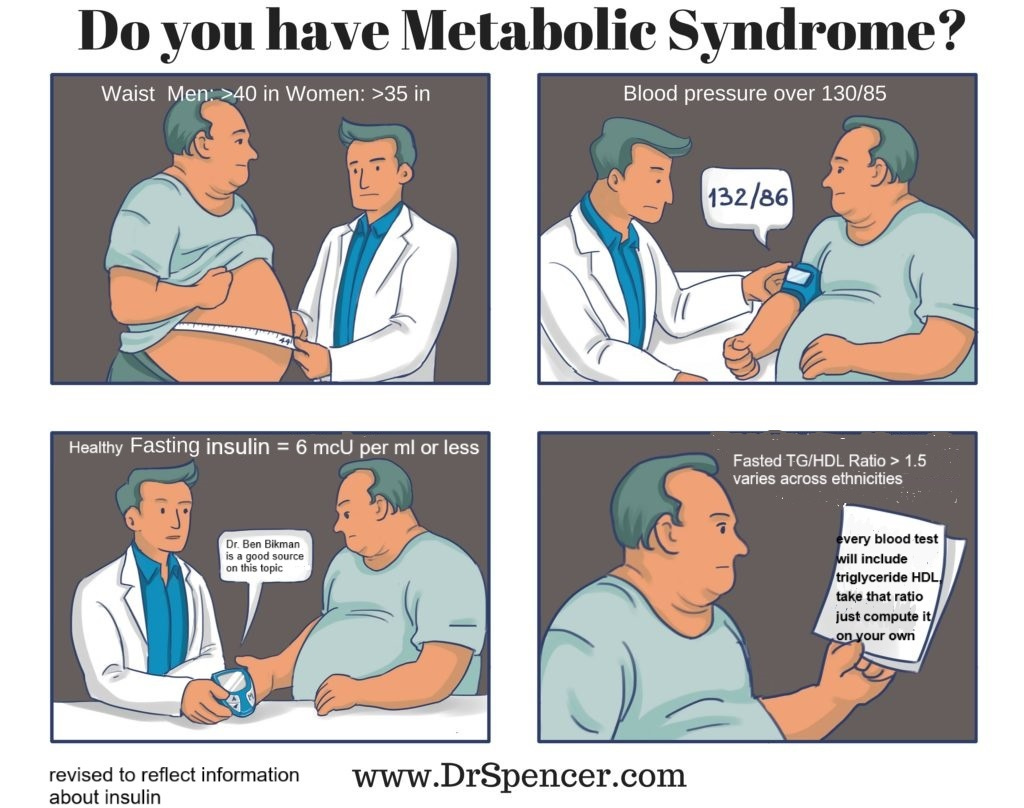Hey buddy,
I hope you’re doing well.
My friend Dave from
stopped by and we’re excited to announce that we are teaming up on this post!It is good to have you here Dave!
Today we want to bring to your attention a study titled Serum insulin levels are associated with vulnerable plaque components in the carotid artery: the Rotterdam Study.1 This study was published in 2020 in the European Journal of Endocrinology.
This study contradicts the prevailing narrative that high cholesterol is the cause of atherosclerotic cardiovascular disease. The study found that higher levels of fasted and non-fasted insulin are associated with vulnerable plaques, which are prone to rupture and can ultimately lead to heart attacks and strokes.
So, how can one determine if they have higher levels of fasting and non-fasting insulin? There are several ways to arrive at this conclusion.
Firstly, due to eating habits and sedentary lifestyles, high insulin - AKA insulin resistance - is quite common in Westernized countries. Another study states that only 12% of Americans are metabolically healthy.2 The study notes that these numbers change depending on what is included in the evaluation.
This suggests that it is quite likely that one has or is progressing towards insulin resistance, if they are not aware of the information being discarded to the fringes.
Doctors are not routinely testing for insulin.
Doctors commonly test fasted glucose and seldom test fasted insulin. Fasted insulin tests3 would provide a more reliable means of determining if one is insulin resistant and therefore at risk of developing the dangerous plaques that accumulate in the bloodstream.
So why aren’t doctors regularly testing for this? There are likely several reasons. Certainly one of the reasons is that these diseases are generating wealth for investors.
So what are you and I supposed to do?
The first step to taking charge of our bodies is to pay attention to them. Spend a week eating as normal but track everything you eat and take note of how your body responds. Keep the following questions in mind:
Are you eating more refined sugar or simple carbs than you realize?
Are you eating scheduled meals, eating sporadically, or grazing throughout the day?
How do you feel after you eat?
What are you eating that makes you feel full and energized?
Are you drinking enough water (with a little mineral salt of course)?
Is your waistline >40” if you’re a man or >35” if you’re a woman?
The following symptoms can also be attributed to possible insulin resistance:
Increased appetite, constant hunger, and/or sudden food cravings.
Dizziness, sweating and tremors associated with low blood sugar
Fat accumulation in the abdominal area
A constant state of fatigue.
Frequent urination and/or a feeling of tightness.
High blood pressure4
Once you’ve got a more in-depth picture of what’s going into your body, you can start to steadily modify your diet and make lifestyle changes that will encourage your body to more efficiently use the fuel that it’s getting, but also the fuel that it has stored in fat cells.
Find an exercise routine that works for your schedule and your ability. Commit to it and build on it gradually. I would highly recommend Hybrid Calisthenics, which focuses on flexibility as well as strength. It is a very approachable program that meets you where you are, establishes good foundational movements and muscles and builds from there.5
As far as food goes, consider the following:
Eliminate ultra-processed packaged foods and stick to fresh produce, meat and dairy
Remove the sugary beverages from your diet.
Replace soy, seed oils, and MSG with animal proteins and eggs, butter and other healthy non-ultra-processed fats, and hearty sprinklings of mineral salt.
Season your food with herbs and spices like fenugreek, turmeric, ginger, cinnamon, and garlic, which have been shown to improve insulin sensitivity.
Incorporate apple cider vinegar and fermented foods into your diet to boost your gut microbiome.6
The next thing that you can do is join me in practicing intermittent fasting, while maintaining an appropriate calorie count for your situation. I wrote about this recently, but the effect it has on glucose and insulin resistance is remarkable. After around 18-24 hours of fasting, your body has depleted its glucose stores and shortly thereafter will begin to repair its own cells.
As you build in these healthy habits, continue to monitor how your body is reacting. Adjust as needed but stay the course.
The more small, repeatable, sustainable changes that we can make to our overall health, the more likely we will be to overcome the insulin resistance that we as a culture seem so destined to fall prey to.
Stay strong, buddy.
Do not comply.
It was a pleasure as always to see you. We hope you have a great week.
Your Friends
Renee and Dave
P.S. Check out Dave’s article on intermittent fasting linked here:
P.P.S. To learn more about the study, we recommend this YouTube video by Mike Mutzel from High Intensity Health:












